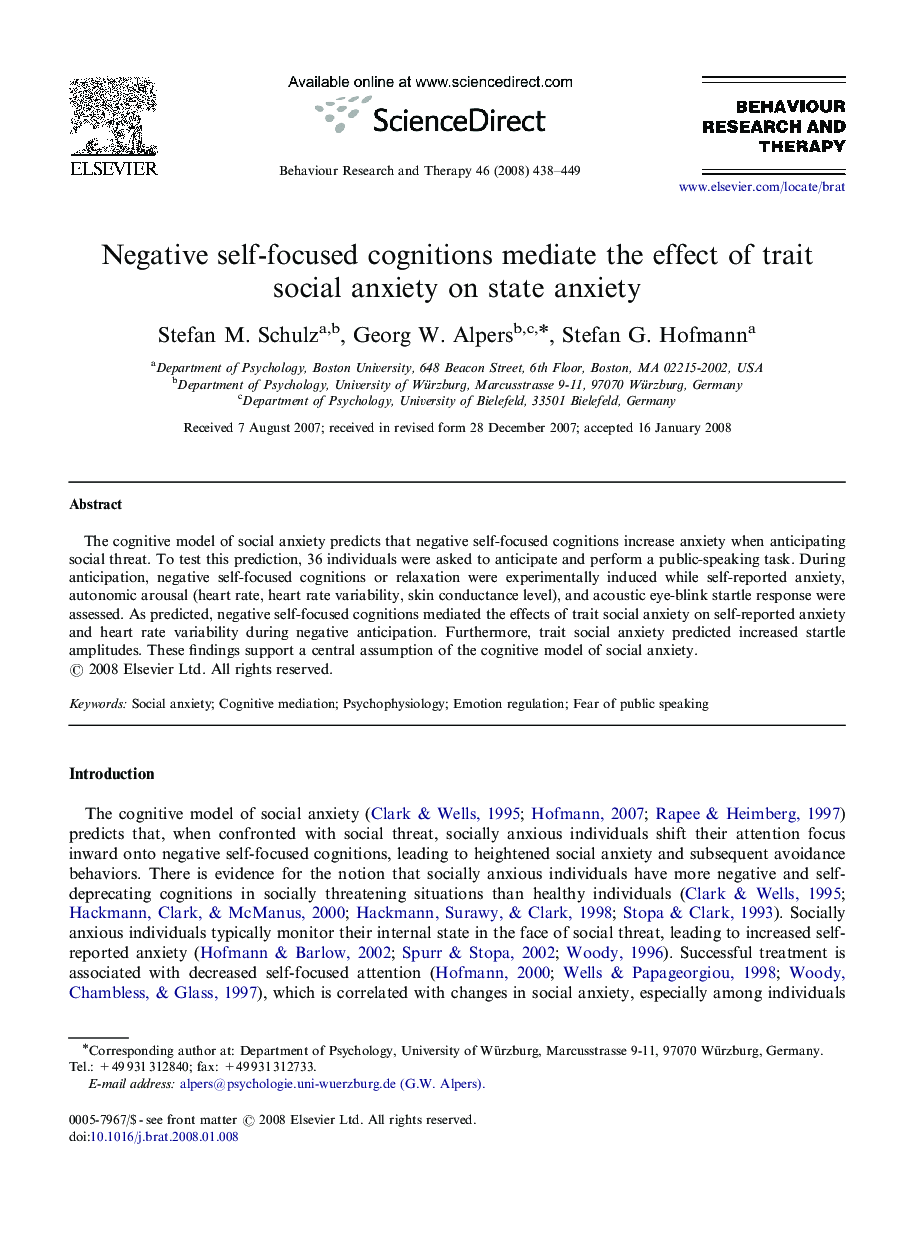| Article ID | Journal | Published Year | Pages | File Type |
|---|---|---|---|---|
| 902265 | Behaviour Research and Therapy | 2008 | 12 Pages |
The cognitive model of social anxiety predicts that negative self-focused cognitions increase anxiety when anticipating social threat. To test this prediction, 36 individuals were asked to anticipate and perform a public-speaking task. During anticipation, negative self-focused cognitions or relaxation were experimentally induced while self-reported anxiety, autonomic arousal (heart rate, heart rate variability, skin conductance level), and acoustic eye-blink startle response were assessed. As predicted, negative self-focused cognitions mediated the effects of trait social anxiety on self-reported anxiety and heart rate variability during negative anticipation. Furthermore, trait social anxiety predicted increased startle amplitudes. These findings support a central assumption of the cognitive model of social anxiety.
